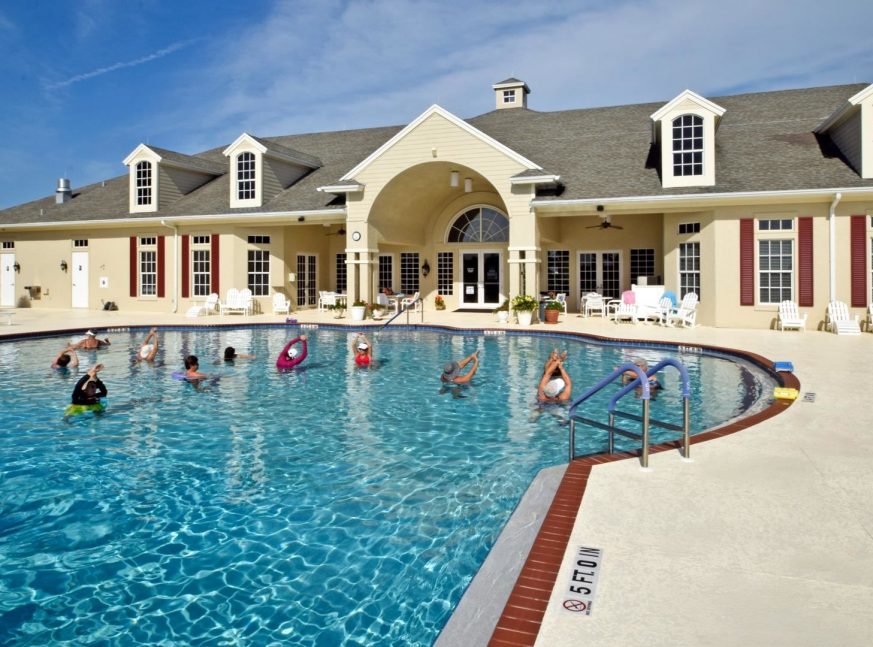Start working from home | Apply Now
Have work at home | Join Us
Make money from home| Start Now
There are a few key things to keep in mind when you’re shopping for a retirement home. First, you’ll want to find a place that’s safe and secure. This is especially important if you’re looking for a retirement community that’s close to urban areas.
You’ll also want to make sure the community has good amenities and activities for residents. Finally, you’ll want to find a place that’s affordable and within your budget. Keep these nine things in mind when you’re shopping for a retirement home, and you’re sure to find the perfect place for your needs.
Click Here to Start Amazon Work from Home Jobs
Are you looking for a retirement home? Here are 9 things to look for: 1. Location.
You’ll want to choose a location that suits your lifestyle and budget. Consider factors like climate, proximity to family and friends, and access to medical care. 2. Housing options.
Retirement homes come in all shapes and sizes. From apartments to single-family homes, there’s sure to be something that fits your needs. 3. Amenities.
When choosing a retirement home, make sure it has the amenities that are important to you. This could include things like a swimming pool, golf course, or fitness center. 4. Cost of living .
Be sure to factor in the cost of living when choosing a retirement home . This includes things like utilities, groceries , and healthcare .5 5 Maintenance fees .
Many retirement homes charge monthly or yearly maintenance fees . Be sure to ask about these fees before making your decision .6 6 Activities and events .
A retirement home should offer plenty of activities and events for residents to enjoy . Make sure there is something for everyone so you can stay active and engaged in your community .7 7 Safety and security . Retirement homes should offer safety features like security guards , cameras , and gates . They should also have an emergency plan in place in case of fire or other disasters .8 8 Staff members . The staff members at a retirement home play an important role in its day-to-day operations . Be sure to meet with the staff members before making your decision so you can get a feel for their personalities and professionalism .9
Early Retirement: 9 things to know from a 33-year-old retiree
Is It Better to Buy a House before Or After Retirement?
It really depends on each person’s situation. Some people may find that it’s better to buy a house before retirement so they can have a place to call home and settle down. Others may prefer to wait until after retirement, when they have more time and might want to downsize or move to a different location.
There are pros and cons to both buying a house before or after retirement. For example, if you buy a house before retirement, you may have trouble selling it later on if you decide to move. On the other hand, if you wait until after retirement to buy a house, you may end up paying more since prices tend to go up as people get older.
Ultimately, it’s important to weigh all your options and decide what’s best for you based on your unique circumstances. If you’re not sure what to do, it might be helpful to speak with a financial advisor who can help you make the best decision for your future.
How Much Should I Spend on My Retirement Home?
When it comes to deciding how much to spend on a retirement home, there are a few key factors to consider. First, you’ll want to think about your current and future financial situation. How much money do you have saved for retirement?
What is your expected income during retirement? How long do you plan on living in your retirement home? Next, you’ll need to think about the type of retirement home you’re interested in.
Are you looking for a single-family home, condo, or apartment? Would you like to live in an active adult community or 55+ community? Each type of housing has different costs associated with it.
Finally, consider your lifestyle and needs during retirement. Do you plan on traveling often? Would you like to be close to family and friends?
Do you need easy access to medical care? Answering these questions will help narrow down your search and ultimately lead you to the best decision for your budget.
Should a Retiree Pay Cash for a House?
There are pros and cons to paying cash for a house as a retiree. On one hand, retirees often have more money saved up than younger homeowners and may be able to get a good deal on a home by paying cash. On the other hand, taking out a mortgage can provide tax advantages and allow retirees to keep their money invested.
Ultimately, the best decision depends on the retiree’s financial situation and goals. Paying cash for a house has some major benefits. For one, it means that you won’t have to worry about making monthly mortgage payments.
This can free up your budget and give you more financial flexibility in retirement. Additionally, paying cash can help you avoid costly interest payments over time. And in some cases, you may even be able to negotiate a lower purchase price by offering to pay cash upfront.
Of course, there are also some drawbacks to consider before deciding whether or not to pay cash for your next home. For instance, if you have the option of investing your money instead of using it to buy a house outright, you may be able to earn more in returns over time. Additionally, carrying a mortgage into retirement can provide some valuable tax breaks that could save you money down the line.
How Big Should My Retirement Home Be?
There’s no one answer to this question – it depends on your specific needs and wants. However, here are a few things to consider when deciding on the size of your retirement home: – How many people will you be living with?
If you’re planning on having guests stay often, you’ll need more space than if you’re just retired couple. – What kind of activities do you enjoy? If you like to entertain or garden, for example, you’ll need a larger yard or patio than someone who doesn’t.
– Do you plan on traveling often? If so, you may not need as much space at home since you won’t be there all the time. Ultimately, it’s up to you to decide how big your retirement home should be.
Consider your lifestyle and needs when making your decision – that way, you can be sure that your new home will be just right for you.
Click Here to Start Amazon Work from Home Jobs

Credit: www.healthline.com
What to Look for When Buying a Retirement Home
When it comes time to retire, many people begin to think about downsizing and buying a retirement home. But what should you look for when choosing a retirement home? Here are four important factors to consider:
1. Location: You’ll want to choose a location that suits your lifestyle and budget. Consider things like weather, proximity to family and friends, access to amenities, and cost of living. 2. Size: Retirement homes come in all shapes and sizes.
Think about how much space you’ll need and what kind of layout you’re looking for. Do you want a single-level home or something with stairs? 3. Maintenance: upkeep can be costly, so make sure to factor in things like HOA dues, landscaping costs, and painting expenses when choosing a retirement home.
Also, be sure to inspect the property thoroughly before making an offer – look for any signs of needed repairs or potential problems down the road. 4. Amenities: Many retirement communities offer amenities like fitness centers, pools, clubs, and social activities. If these are important to you, be sure to inquire about them before making a decision on where to retire.
Buying a Retirement Home before You Retire
Planning to buy a retirement home before you actually retire? There are both pros and cons to this strategy – it all depends on your particular situation. Here are some things to consider if you’re thinking about purchasing a retirement home while you’re still working:
The Pros: 1. You’ll have plenty of time to enjoy your new home. If you purchase a retirement home several years before you plan to retire, you’ll have plenty of time to enjoy all that it has to offer.
This includes amenities like pools, tennis courts, golf courses, and more. You can also use this time to get involved in the community and make friends with your neighbors. Basically, by buying early, you can start living the retired life long before you actually retire!
2. It can be a great investment. If you purchase a retirement home at the right price and in the right location, it can be a great investment for your future. Not only will your home likely increase in value over time, but you may also be able to rent it out when you’re not using it (potentially earning income that can help offset the cost of ownership).
And when you do finally retire, selling your property could provide a nice nest egg for yourself or help pay for long-term care costs down the road.
7 Reasons You Should Rent a Home in Retirement
Retirement is a time when many people downsize and simplify their lives. For some, that means selling their family home and moving into a smaller space. But for others, it may mean renting a home instead.
There are several advantages to renting in retirement, including: 1. More flexibility. Renting gives you the freedom to pick up and move if you want to change locations, without having to go through the hassle (and expense) of selling a home first.
2. No maintenance or repairs. When you own a home, you’re responsible for all the upkeep and repairs – both big and small. When you rent, those responsibilities fall on your landlord instead.
3. Lower costs overall. In addition to not having to pay for repairs and maintenance, renting typically costs less than owning in other ways as well (like property taxes, insurance, etc.). 4. Easier to downsize .
If your needs change over time and you need to downsize your living space, it’s much easier (and less expensive) to do so when you rent than when you own . Simply give notice to your landlord and move into a smaller rental unit – no need to sell your current home first . 5. More social interaction .
Retirement can be lonely , but if you live in a retirement community or 55+ community , there are often built-in opportunities for social interaction with your neighbors . This can help keep boredom and loneliness at bay . 6. Access to amenities .
Many rental communities offer access to amenities like fitness centers , pools , tennis courts , etc., which can be great ways to stay active in retirement . Some even offer transportation services , which can come in handy if you don’t drive anymore .
Click Here to Start Amazon Work from Home Jobs
Conclusion
When you’re ready to retire, you want to find a home that’s just right for you. Here are 9 things to look for when buying a retirement home: 1. Location is important.
You may want to be near family, friends, or favorite activities. Or you may prefer a quiet setting away from the hustle and bustle of city life. Consider your lifestyle and needs when choosing a location.
2. Size matters. A retirement home should be comfortable for you now and in the future. If you’re downsizing from a larger home, make sure your new place has enough storage space for all your belongings.
And if you plan on entertaining guests often, look for a home with extra bedrooms and living space. 3. Maintenance-free living is key. Look for a retirement community that takes care of lawn care, snow removal, and other exterior maintenance tasks.
This way, you can relax and enjoy your golden years without having to worry about upkeep around the house. 4.. Choose your level of activity.
. Do you want neighbors close by or more privacy? Some retirement communities offer both options so you can choose what’s best for you at different stages in your life.
. If being active is important to ypu,, look into amenities like golf courses,, tennis courts,, swimming pools,, and walking trails..5 On the other hand,,if peace anc quiet are whatyou crave , picka neighborhood where most residents keep tp themselves ..6 Regardless pf which routeyyou take here , just make sure there are plenty offellow retirees nearby soyu won’t feel isolated .7 Also consider how closeby thd nearest ckty or town is ; some people prefer easy access to shops anc restaurants while others prefei being more removed from civilization ..8 Safety first . When looking at prospective homes , pay attention tp things like security features anc emergency services . Find out if there’s ahospital or fire station nearby in case qf an accident qr illness ..9 Lastly , have realistic expectations . Unlessyou have aconsiderable nest egg saved up , chances areyour budget won’t allowfor apenthouse suite or oceanfront property . Be mindful offinancial limitations early onsoyu don’t get disappointed later down thd line .




